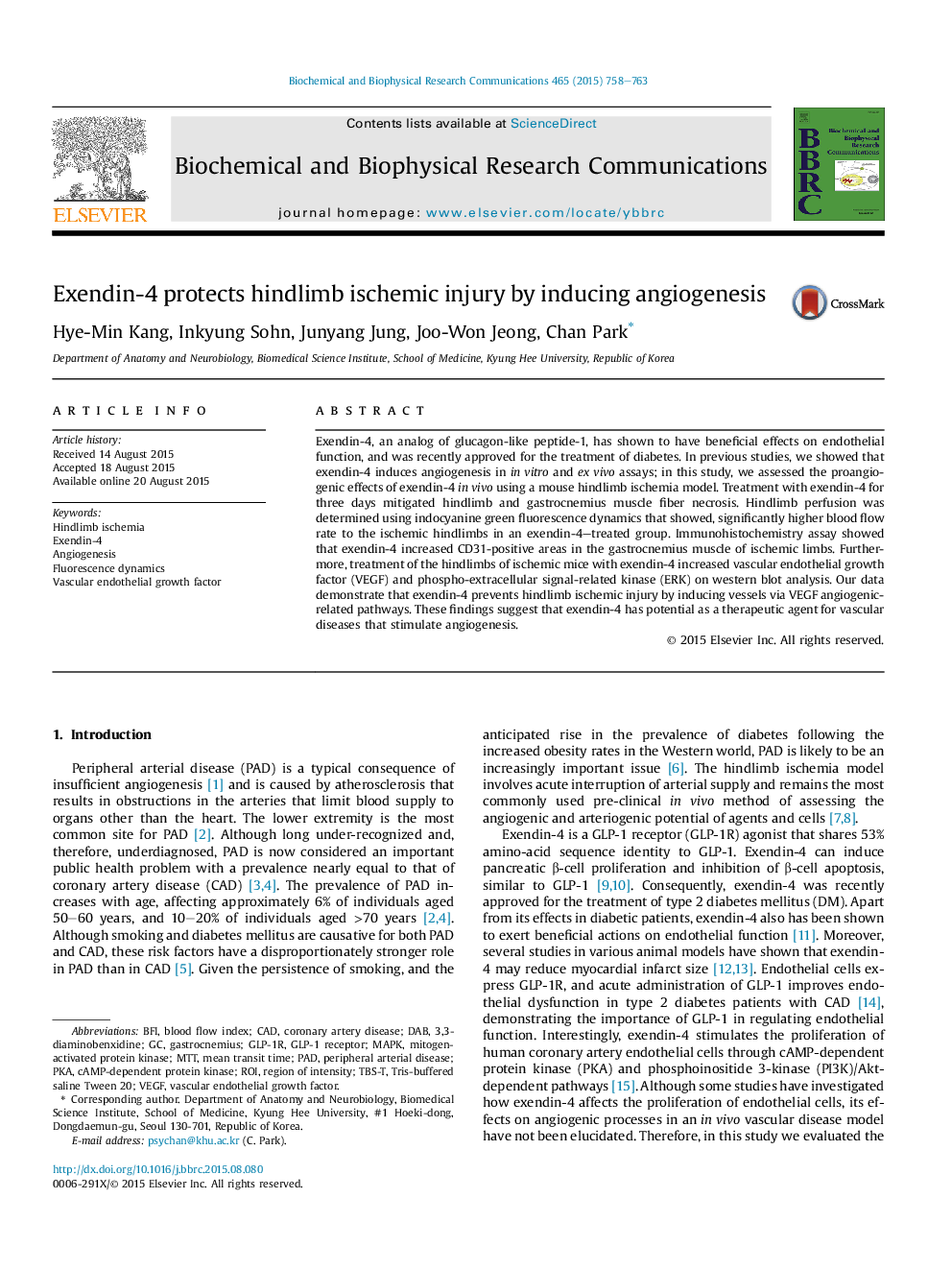| Article ID | Journal | Published Year | Pages | File Type |
|---|---|---|---|---|
| 10750120 | Biochemical and Biophysical Research Communications | 2015 | 6 Pages |
Abstract
Exendin-4, an analog of glucagon-like peptide-1, has shown to have beneficial effects on endothelial function, and was recently approved for the treatment of diabetes. In previous studies, we showed that exendin-4 induces angiogenesis in in vitro and ex vivo assays; in this study, we assessed the proangiogenic effects of exendin-4 in vivo using a mouse hindlimb ischemia model. Treatment with exendin-4 for three days mitigated hindlimb and gastrocnemius muscle fiber necrosis. Hindlimb perfusion was determined using indocyanine green fluorescence dynamics that showed, significantly higher blood flow rate to the ischemic hindlimbs in an exendin-4-treated group. Immunohistochemistry assay showed that exendin-4 increased CD31-positive areas in the gastrocnemius muscle of ischemic limbs. Furthermore, treatment of the hindlimbs of ischemic mice with exendin-4 increased vascular endothelial growth factor (VEGF) and phospho-extracellular signal-related kinase (ERK) on western blot analysis. Our data demonstrate that exendin-4 prevents hindlimb ischemic injury by inducing vessels via VEGF angiogenic-related pathways. These findings suggest that exendin-4 has potential as a therapeutic agent for vascular diseases that stimulate angiogenesis.
Keywords
pKatris-buffered saline tween 20GLP-1RBFIGastrocnemiusTBS-TROIDABMAPKMTTAngiogenesisexendin-4Hindlimb ischemiaPeripheral arterial diseasecoronary artery diseaseFluorescence dynamicsblood flow indexCADVascular endothelial growth factorVascular Endothelial Growth Factor (VEGF)Mean transit timePADmitogen-activated protein kinasecAMP-dependent protein kinaseGLP-1 receptor
Related Topics
Life Sciences
Biochemistry, Genetics and Molecular Biology
Biochemistry
Authors
Hye-Min Kang, Inkyung Sohn, Junyang Jung, Joo-Won Jeong, Chan Park,
